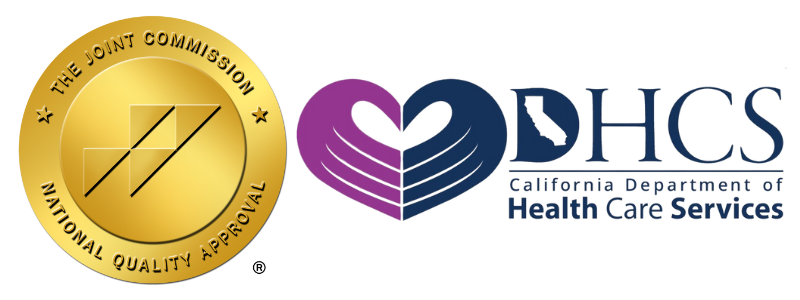Cocaine Addiction Treatment

Breaking Free from Cocaine Dependency & Reclaiming Your Life
Cocaine addiction is one of the most dangerous and fast-acting substance use disorders, affecting the brain’s reward system almost instantly. Whether snorted, injected, or smoked as crack cocaine, this stimulant creates a powerful, short-lived high, often followed by a devastating crash—leading to intense cravings, risky behaviors, and physical deterioration.
At Mission Recovery Home, we provide specialized cocaine addiction treatment designed to address not just the physical dependency but also the underlying emotional and psychological factors that contribute to cocaine abuse. Our comprehensive, medically supervised program offers individuals the chance to detox safely, regain mental clarity, and build the foundation for lifelong recovery.
What Is Cocaine Addiction?
The drug triggers an intense surge of dopamine, the neurotransmitter responsible for pleasure, motivation, and reward. However, this dopamine flood is short-lived, leading to:
- Intense euphoria followed by a severe crash
- Immediate cravings for more cocaine
- Rapid tolerance buildup, requiring larger doses
- Severe withdrawal symptoms upon cessation
Cocaine Addiction by the Numbers (National Institute on Drug Abuse - NIDA)
- 1.4 million people in the U.S. suffer from cocaine use disorder
- 24,486 overdose deaths in 2021 were linked to cocaine use.
- Over 70% of cocaine-related deaths involve synthetic opioids like fentanyl.

How We Treat Cocaine Addiction at Mission Recovery Home
Step 1: Medically Supervised Detox
Safe withdrawal management with 24/7 medical support
Nutritional and hydration therapy to replenish the body
Medications to ease anxiety, depression, and cravings
Step 2: Inpatient Cocaine Rehab
Individual therapy (Cognitive Behavioral Therapy - CBT) to retrain the brain’s reward system
Group therapy and peer support for emotional healing
Holistic therapies such as yoga, meditation, and brain wellness programs
Step 3: Intensive Outpatient Treatment (IOP) & Relapse Prevention
Flexible treatment for individuals reintegrating into daily life
Ongoing therapy to manage stress and triggers
Employment and life skills training to rebuild independence
Signs & Symptoms of Cocaine Addiction
Behavioral Signs of Cocaine Addiction
Frequent use in social or party settings that escalates to daily use
Increased secrecy, lying, or disappearing for long periods
Engaging in risky behaviors while under the influence
Financial problems due to spending excessive money on cocaine
Legal issues such as DUIs or possession charges
Physical & Psychological Symptoms
Agitation, hyperactivity, or impulsive decision-making
Weight loss due to appetite suppression
Mood swings, paranoia, and extreme anxiety
Hallucinations or feelings of bugs crawling under the skin ("coke bugs")
Difficulty sleeping or staying still
How Cocaine Affects the Brain & Body
Cocaine and the Brain
- Excessive stimulation of the brain’s pleasure centers
- Overstimulation of the nervous system, resulting in paranoia, hallucinations, and anxiety
- Long-term changes in brain chemistry, making it harder to feel pleasure naturally

Short-Term Effects of Cocaine Use
- Extreme energy, confidence, and talkativeness
- Loss of appetite and increased heart rate
- Paranoia, restlessness, and aggression
- Dilated pupils and increased body temperature
- Severe depression and anxiety during the crash phase
Long-Term Effects of Cocaine Abuse
- Permanent damage to the heart and blood vessels – Leading to strokes and heart attacks
- Severe nasal and lung damage – Snorting can lead to tissue erosion, while smoking crack damages the lungs and respiratory system
- Cognitive impairment – Long-term use causes memory problems, attention deficits, and mental fog
- Malnutrition and weight loss – Cocaine suppresses appetite, leading to severe physical deterioration
- Increased risk of infectious diseases – Injecting cocaine raises the risk of HIV, hepatitis, and dangerous infections

How We Treat Cocaine Addiction at Mission Recovery Home
Step 1: Medically Supervised Detox
Safe withdrawal management with 24/7 medical support
Nutritional and hydration therapy to replenish the body
Medications to ease anxiety, depression, and cravings
Step 2: Inpatient Cocaine Rehab
Individual therapy (Cognitive Behavioral Therapy - CBT) to retrain the brain’s reward system
Group therapy and peer support for emotional healing
Holistic therapies such as yoga, meditation, and brain wellness programs
Step 3: Intensive Outpatient Treatment (IOP) & Relapse Prevention
Flexible treatment for individuals reintegrating into daily life
Ongoing therapy to manage stress and triggers
Employment and life skills training to rebuild independence
The Importance of Getting Help Now
- Increased risk of overdose and sudden death
- Permanent damage to the heart, brain, and respiratory system
- Severe mental health decline, including paranoia and psychosis
- Strained relationships, legal troubles, and financial ruin

What We Hope to Achieve for Every Client
- Physical & Emotional Healing – Restore your body, mind, and emotional well-being.
- Cognitive Recovery – Reverse the effects of cocaine on brain function and mental clarity.
- A New Perspective on Life – Develop healthier habits, coping skills, and positive relationships.
- Lasting Sobriety & Success – Gain the tools needed to stay clean and live a fulfilling life.

Why Choose Mission Recovery Home?
Expert Medical & Clinical Team
Specialists in cocaine addiction recovery.
Customized, Evidence-Based Treatment Plans
Tailored to each individual’s unique needs.
Safe, Comfortable Detox & Rehab
Providing a peaceful, supportive environment for healing.
Long-Term Aftercare & Relapse Prevention
Ensuring continued success after treatment.


